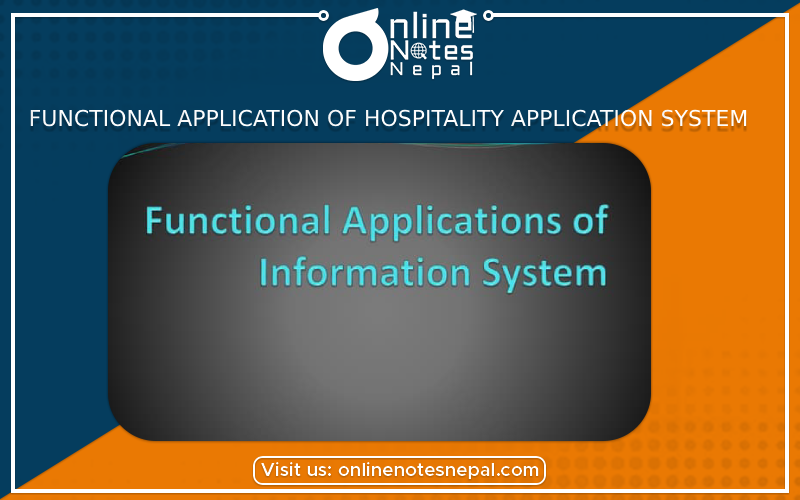Published by: Anu Poudeli
Published date: 18 Jul 2023

Hospitality application systems are intended to improve and streamline different parts of the hospitality industry, such as hotels, restaurants, resorts, and other hospitality enterprises. These apps manage reservations, guest services, personnel management, inventory, billing, and other functions.
Here are some examples of hospitality application system functional applications:
Reservation Management: Managing reservations is one of the key duties of a hospitality application system. It enables guests to reserve rooms or tables online, verify availability, and receive quick confirmation. The system can also easily handle changes, cancellations, and rescheduling, reducing the danger of overbooking.
Guest Profile and Relationship Management: Hospitality apps collect and store guest information and preferences, resulting in detailed guest profiles. This information may include contact information, room type choices, dietary restrictions, previous stay history, and any special requests. Hotels can use this information to customise the guest experience, increasing consumer happiness and loyalty.
Integration with Point of Sale (POS) Systems: Many hospitality apps integrate with POS systems used in restaurants and bars. This provides for consistent invoicing and tracking of guest spending throughout their stay, from accommodation rates to restaurant bills and other perks.
Inventory Management: Inventory management is critical for hotels and resorts to assure the availability of amenities and supplies. The application system assists in tracking and managing inventory levels for things such as toiletries, linens, and towels.
Housekeeping and maintenance: The application system can help you efficiently coordinate housekeeping and maintenance tasks. It is capable of assigning and tracking room cleaning schedules, repair requests, and room status updates, ensuring that rooms are available for new guests as soon as possible.
Staff Management and Scheduling: Hospitality software make it easier to manage employees, including human resources functions, scheduling, and payroll. Managers can use the system to set work schedules, track staff hours, and handle performance assessments.
Reporting and Analytic : Hospitality application systems offer thorough reports and analytics that provide insights into numerous parts of the business. Managers may make informed decisions and find areas for improvement by analyzing occupancy rates, revenue, guest feedback, and other critical performance data.
Marketing and Loyalty Programs: The application system can support loyalty programs and marketing initiatives. It can track guest involvement in loyalty programs, provide customised promotions, and deliver targeted marketing communications to previous guests in order to entice them to return.
Management of Online Reviews and Feedback: The system can assist in the management of online reviews and guest feedback, allowing hotels and restaurants to respond quickly and address any complaints. Positive feedback can be utilized for marketing, while negative feedback can be used to enhance service.
Mobile Accessibility : With the rising use of smartphones, many hospitality application systems now allow mobile accessibility. Guests can utilize mobile apps to check in, access their bookings, order room service, and contact with hotel employees, improving convenience and the overall guest experience.
Finally, hospitality application systems are critical in streamlining processes, improving client experiences, and increasing overall efficiency in the hospitality business. Businesses may stay competitive, deliver superior services, and build guest loyalty by embracing these functional applications.